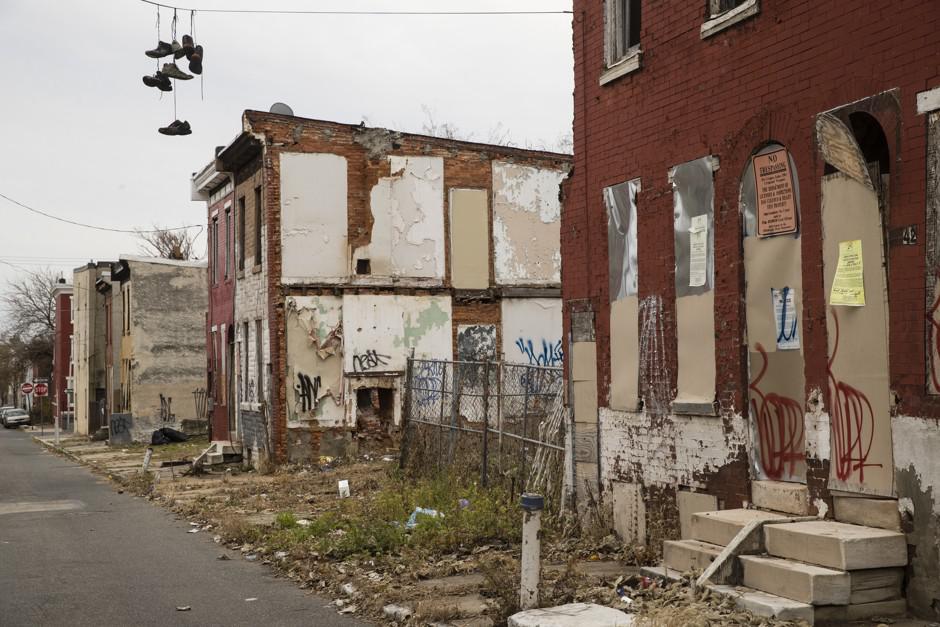Physical Address
304 North Cardinal St.
Dorchester Center, MA 02124
Physical Address
304 North Cardinal St.
Dorchester Center, MA 02124

Is it even possible today to write a vigorous argument in favor of the urban renewal policies of the 1950s? I doubt it. Jeanne Lowe's 1967 "Cities in a Race with Time* is a sympathetic account of the urban renewal era in its own terms. How does it hold up?

It’s an understatement to say that zoning is a dry subject. But in a new video for the Institute for Humane Studies, Josh Oldham and Professor Sanford Ikeda (a regular contributor to this blog) manage to breath new life into this subject, accessibly explaining how zoning has transformed America’s cities. From housing affordability to mobility to economic and racial segregation to the Jacobs-Moses battle, they hit all the key notes in this succinct new video. If you need a go-to explainer video for the curious new urbanists, this is the one. Enjoy!

My guest this week is Sanford Ikeda, a professor of economics at SUNY Purchase and a visiting scholar at New York University. He has written extensively on urban economics, policy, and planning. Professor Ikeda introduced me to urban economics and urban planning when he gave a presentation on Jane Jacobs at a FEE summer seminar that I attended back in 2012. Here are a few of the topics we discussed in the episode: If you haven’t already, I highly suggest reading Jane Jacobs. The natural place to start is The Death and Life of Great American Cities. Her other books, including The Economy of Cities and Systems of Survival, explore topics ranging from economics to political philosophy. Professor Ikeda has written extensively on Jane Jacobs. You can read a nice overview here. If you would like to read more, click here for a paper he wrote on F.A. Hayek, Jane Jacobs, and the importance of local knowledge in cities. He is also a regular contributor to Freeman and Market Urbanism. We also discussed William H. Whyte’s famous documentary on public space, The Social Life of Small Urban Spaces. It’s well worth checking out. Help spread the word! If you are enjoying the podcast, please subscribe and rate us on your favorite podcasting platform. Find us on iTunes, PlayerFM, Pocket Casts, Stitcher, and Soundcloud. Our theme music is “Origami” by Graham Bole, hosted on the Free Music Archive.
In the comments of my most recent post, insightful commenter, OldUrbanism pointed out some items that need attention: The last two factors, legal costs associated with eminent domain and opportunity costs of land, are in fact often included in typical project cost estimates for both public and private projects. The former is fairly straightforward, as it is a project-related cost. The latter, opportunity cost of land, is simply the purchase price of land. In the case of this example, where land acquisition costs are assumed as part of the project cost, OldUrbanism is exactly correct. I’m truly embarrassed for being sloppy in that statement and will correct it. Of course, I still stand by my exposure of the ignorance of land opportunity cost by those who assert that existing highways “pay for themselves.” I invite you to check out the discussion of that matter (and other items) with OldUrbanism in the comments of the post. ————— The other day, Reason Foundation’s Samuel Staley had some very generous things to say about Market Urbanism: I just ran across the Market Urbanism web site, and it has a lot of really good analysis and resources available for anyone following urban policy issues. The sub-title of the web site is “Urbanism for Capitalists/Capitalism for Urbanists”. The blog includes lots of references to F.A. Hayek, free markets, and even takes the Cato Institute to task for advocating “socialism for roads.” and This site is well organized and designed. I think it’s a great addition to the debate and discussion, and its refreshing to see a new voice enter into the fray. Thanks Samuel!! I share Reason’s objective of “Free Minds and Free Markets.” I just have to admit I found it a little ironic that he had such nice things to say after I […]
(Map of Robert Moses’ unbuilt proposals via “vanshnookenraggen.”) Sandy Ikeda blogs: If Moses were around today I don’t think he’d waste any time getting every major project he could think of “shovel ready” for hundreds of billions of stimulus money. While he’s no longer with us, I do fear that, with the incentive structure of the stimulus legislation and the knowledge problems that will accompany such massive and hurried construction, we’ll soon be seeing many incarnations of Moses rising up in cities around the country. So, not only will we have to live with ill-conceived mega-projects for decades to come, we’ll be subsidizing the birth of who-knows-how-many local despots who’ll be guiding urban policy for the foreseeable future.